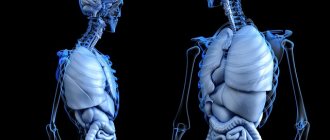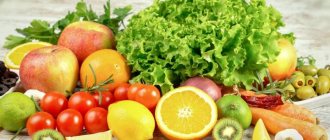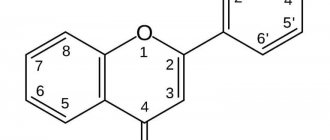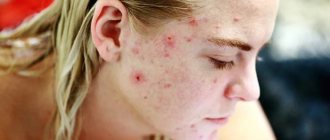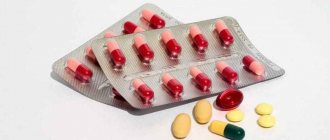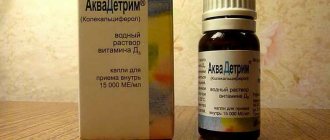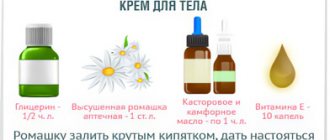Vitamin B8 (inositol, inositol) is a water-soluble substance from group “B”, responsible for the quality functioning of the nervous and reproductive systems of the human body, also affects the quality of hair and skin.
Vitamin B8, discovered in the 800s of the 19th century, enjoyed the fame of the “elixir of youth” a century ago - the presence of a certain dose of inositol in the body helps maintain metabolic processes and protects against aging at the cellular level. Nowadays, B8 serves as the basis for sleeping pills, and the substance itself is increasingly called vitamin-like. But, like other B vitamins, B8 is essential for humans. Its deficiency is fraught with serious consequences, despite the fact that the body is able to produce more than 70% of the daily requirement on its own. Now we’ll find out how this happens and what role nature has assigned to a substance called inositol.
How did humanity learn about B8?
In the scientific, medical and pharmaceutical literature, other names are more often used for B8 - inositol or inositol. The vitamin was discovered as a result of a series of experiments on laboratory rats. The German chemist Liebig began to study the role of certain substances in the diet of animals. The year was 1848, when the scientist identified a pattern: it is enough to remove a newly discovered substance from the diet of rats, and the animals’ growth stops, they lose their hair, and the level of cholesterol in the blood rises sharply. But as soon as you restore the previous menu, all unpleasant symptoms disappear. This is how the world learned about the “anti-balding factor” and the role of B8 for living beings.
Content:
- How did humanity learn about B8?
- Mysterious substance number 8 and its role in human life
- Inositol, where can I find you?
- Why does B8 deficiency occur?
- Who needs inositol
- Assimilation and interaction
- Pharmacy inositol: everything you need to know
- Application in cosmetology
Although inositol officially joined the B family in 1902, scientists still debate whether B8 is a vitamin. Arguments of adherents of the “vitamin” theory: inositol, like other vitamins of the group, is water-soluble and is destroyed under the influence of high temperatures. But there is another version: B8 is just a vitamin-like substance, since the body is able to produce three-quarters of the required dose on its own (it is synthesized by the intestinal microflora from glucose received from outside). But no matter what B8 is called in the end, its role in the body will not change.
Vitamin B8 (Inositol, inositol, inositdroretinol)
General characteristics of vitamin B8 (Inositol, inositol, inositdroretinol)
Vitamin B8 was discovered in 1848 by the German chemist Liebig, and in 1928 this substance was included in the classification of vitamins as B8.
During research, its role in the human body was established. Vitamin B8 ensures the normal course of metabolic processes, being part of many enzymes, activates lipid metabolism (which promotes active weight loss), regulates cholesterol levels, thereby helping to prevent the development of atherosclerosis, obesity and other diseases caused by excess weight.
Vitamin B8 is a vitamin-like substance (as it can be synthesized by the body), one of the most important B vitamins, has another name - inositol, inositol, inositdroretinol.
Physicochemical properties of vitamin B8
In its pure form, vitamin B8 is a water-soluble powder with a crystalline structure that has a sweetish taste. Vitamin B8 is found in large quantities and used in the tissues of the nervous system, the lens of the eye, tear and seminal fluid. It can be synthesized in the body from glucose (calorizer). It is resistant to acids and alkalis, but when heated, B8 quickly collapses.
Food Sources of Vitamin B8
Brewer's yeast, wheat bran, wheat germ, beef heart, oranges, green peas, brains, bread made from regular flour, raisins, wild rice, gooseberries, melon, cabbage, carrots, citrus fruits are very high in inositol content.
Daily requirement for vitamin B8
The daily requirement for vitamin B8 for an adult is 1-1.5 g per day, for children 100-500 mg. There is no established upper tolerable intake level for the vitamin.
Beneficial properties of vitamin B8
Inositol stimulates brain activity, improves concentration, stimulates mental activity, reduces brain fatigue, and increases its ability to remember information.
Inositol is involved in the metabolism of fats in the body, improves the transmission of nerve impulses, and helps maintain a healthy liver, skin and hair.
Vitamin B8 is an essential element for hair, helping to strengthen and restore hair structure, preventing hair loss. This vitamin is included in many cosmetic products for skin and hair. Inositol regulates gas exchange in the skin, which helps maintain hair moisture.
Vitamin B8 reduces cholesterol in the blood, prevents fragility of the walls of blood vessels, and regulates the motor activity of the stomach and intestines. It has a calming effect.
Inositol, like other vitamins in this group, actively affects the functioning of the reproductive system. Affects the reproductive functions of both sexes. Without this substance, not a single egg cell divides and fertilization does not occur.
Harmful properties of vitamin B8
In rare cases, allergic reactions may occur when taking large doses of vitamin B8.
Vitamin B8 absorption
Vitamin B8 is best absorbed in the presence of vitamin E and other B vitamins in the body (calorizator). Inositol also interacts well with vitamin B4 with the subsequent formation of lecithin.
Vitamin B8 deficiency in the body
Its deficiency can lead to disruption of many processes in the body.
Signs of vitamin B8 deficiency:
- constipation;
- increased irritability;
- insomnia;
- skin diseases;
- baldness;
- growth arrest;
- circulatory disorders;
- vision weakens.
The absence or deficiency of vitamin B8 in a person's diet, like any other vitamin in this group, can render the presence of other B vitamins useless.
Excess vitamin B8 in the body
Hypervitaminosis of vitamin B8 is practically impossible, since the body constantly requires large amounts of inositol. In rare cases of overdose, allergic reactions may develop.
Interaction of vitamin B8 (Inositol, inositol, inositdroretinol) with other substances
Inositol combines with choline to form lecithin. Alcohol and caffeine found in tea and coffee destroy inositol.
Vitamin B8 together with choline (vitamin B4) enhance the effectiveness of the physiological action of vitamin E.
About the human need for vitamins, watch the video “Organic Chemistry. Human need for vitamins"
Author: Marina L. (especially for) Copying this article in whole or in part is prohibited.
Mysterious substance number 8 and its role in human life
Inositol is a white, sweet-tasting substance that resembles a crystalline powder in appearance. And despite what scientists call it, a lack of B8 leads to serious disruptions in the functioning of individual organs and entire systems.
This vitamin (or a vitamin-like substance) is a panacea for many problems: from nervous disorders to obesity and weak hair. And within each system of the human body, inositol has its own important role.
- Nervous system. One of the most important systems of the body that depends on B8 is the nervous system. Inositol has the power to transmit impulses at the intercellular level. With this knowledge, it becomes clear why B8 is prescribed for diseases of the musculoskeletal system caused by loss of sensitivity in nerve endings.
Inositol deficiency is almost always a problem with the functioning of the brain and spinal cord, as it is essential for the viability of brain cells. This failure is manifested by a decrease in concentration and efficiency of mental activity, the brain quickly gets tired, and the ability to remember sharply deteriorates.
It is B8 that is responsible for the exchange of impulses at the cellular level; its deficiency provokes a decrease in the sensitivity of nerve endings, and this is the cause of many serious diseases of the nervous system.
Vitamin B8 is called the safest antidepressant and natural sedative. Its beneficial effect on the body is felt by people with insomnia, neurosis, panic attacks, and various kinds of phobias.
By the way, researchers claim that women are capable of becoming depressed 2 times more often than men: 25% versus 12%. But adherents of a different point of view say: the figures are inconclusive and, most likely, inaccurate, since men are less likely to seek medical help than women. Therefore, it is not possible to talk about 100% accuracy of such indicators, which means that B8 as an antidepressant is equally needed by both women and men. True, the female body is more susceptible to stress due to physiological reasons (PMS, menopause).
But no matter what causes the bad mood, there is a rescue pill - vitamin B8. People with a sufficient supply of inositol are usually not afraid of depression, neuroses, phobias and other mental disorders.
- Digestion. If the daily diet is rich in products containing B8, any diet for weight loss will be accepted by the body more calmly - without stress and the desire to protect itself from “hunger” at any cost. At the level of the digestive system, with any nutritional program, inositol helps strengthen intestinal motility, regulate gastric motility, and promotes the normal formation of microorganisms necessary for digestion.
- Hepatology. For the liver, inositol serves as a protector against excessive growth of fat cells. Also, being an effective antioxidant, it takes on the blow of toxins, thereby significantly reducing the destructive effect of alcohol, antibiotics, hormonal drugs, helping to remove free radicals that negatively affect the structure of liver cells. On the other hand, B8 prevents cancer and the development of liver dystrophy in vegetarians following a protein-free diet, and is used as an effective medicine for hepatosis (replacement of normal liver cells - hepatocytes - with fatty ones) of any etiology. The ability of B8 to influence the secretory activity of the gallbladder in healthy and sick people has also been proven.
- Metabolism. Being, like most B vitamins, an active participant in enzymatic processes, it improves metabolism, including lipid metabolism. Promotes faster weight loss and prevents the development of obesity. This ability explains why it is important to increase your intake of vitamin B8 during a weight loss diet.
- For vessels. Inositol helps lower cholesterol, thins the blood and strengthens the walls of blood vessels. Taken together, this process provides an effective protection against atherosclerosis. And the ability to regulate blood pressure makes B8 an effective remedy against hypertension.
- For hair and skin. Simultaneously with the discovery of inositol, its effect on the condition of hair and skin was proven. Inositol in preparations for external use significantly improves the quality of the epidermis. For hair, its positive effect lies in the ability to enhance growth, protect against hair loss, and improve structure.
- Reproductive system. The quality of the reproductive system (female and male) also depends on the presence of the required amount of B8 in the body. In the male body, the vitamin is necessary for the formation of viable sperm. An interesting fact is that 100 g of sperm usually contain 53 mg of inositol, and if there is less of it in the seminal fluid, this means that the ability to fertilize is reduced. In the female body, inositol promotes the normal course of natural processes in the eggs. Often the cause of female infertility is a lack of inositol. In gynecology, B8 is part of the treatment program for polycystic ovary syndrome.
- Muscles and bones. Medicine is also known for the ability of B8 to influence the speed and quality of development of bone and muscle tissue, since inositol has the “gift” of enhancing protein synthesis. This property makes the vitamin an important component of the children's diet, and is also especially in demand after fractures, dislocations and other bone injuries.
- Obstetrics and pediatrics. Consuming less than the daily requirement of the vitamin by a pregnant woman can cause abnormal lung development in the fetus, and then provoke respiratory distress syndrome in the infant. Studies in pediatrics and neonatology have shown that B8, included in the diet of premature babies, gives a positive result in the treatment of bronchopulmonary dysplasia, retinopathy, sepsis, hemorrhage and other dangerous diseases. Used as a treatment for bipolar disorder in children and adolescents. In infancy, inositol plays the role of a “growth factor” and promotes the synthesis of other B vitamins.
- For diabetes. It is believed that diabetic polyneuropathy inevitably leads to loss of myo-inositol. Therefore, patients need an increased dose of inositol from the outside (sometimes it is necessary to double the daily dose). And increased consumption of the vitamin by diabetics has a positive effect on the cardiovascular system and the general condition of the patient. Some argue that vitamin B8 in combination with folic acid can prevent the risk of developing type 2 diabetes.
- Oncology. Hexaphosphate (a form of inositol in which a vitamin-like substance is present in plants) is a powerful antioxidant, which is what brought B8 fame as an antitumor agent. Researchers in many countries around the world are actively conducting experiments to confirm this theory. There is already evidence of the effectiveness of the use of inositol in the treatment of malignant neoplasms in the liver, rectum, and mammary glands. The vitamin protects against the risk of cancer problems in smokers, in particular those diagnosed with bronchial dysplasia. Laboratory studies have proven the positive effect of natural inositol in the fight against cancer cells in the pancreas and melanoma on the skin. The influence of B8 on the immune system helps protect the body from the development of malignant tumors.
Interesting Facts
The most active “consumers” of B8 are the lens and retina of the eye, as well as tissues of the nervous system. Tears and seminal fluid are most saturated with inositol. Organ tissues are capable of accumulating a supply of unused B8. The main “reserve funds” are concentrated in the spinal cord and brain. Thus, nature took care of being able to instantly smooth out the effects of stress on the body. Therefore, in order to preserve vitamin reserves in the brain, when there is increased mental activity, B8 is prescribed for preventive purposes.
Inositol, where can I find you?
The body's daily need for inositol is determined by the quality of nutrition, physical activity and general health. The substance is transported throughout the body with blood. Doctors convince us that for the normal functioning of all systems, 1 ml of blood must contain at least 4.5 mcg of inositol.
Despite the fact that the body is able to produce almost 3/4 of the daily requirement of inositol on its own, this does not mean that there is no need to take care of a varied diet.
B8, like the other vitamins of the group, is a substance that must be supplied to the body daily with food, that is, 25% of inositol must be restored daily from external sources.
If you want to enrich your diet with vitamin B8, it is important to know which foods contain inositol in maximum doses. And these are representatives from different groups:
- animal origin;
- vegetables;
- fruits and dried fruits;
- cereals, seeds, legumes.
In the group of animal products, the most concentrated sources of B8 are by-products (heart, liver, brain). But when choosing meat products containing vitamins, it is important to take into account that the animals are naturally fed, since if there are steroids, antibiotics, pesticides and other chemicals in the livestock diet, meat and offal do more harm than good. High levels of inositol are found in fish, poultry and other types of meat.
Among the foods rich in vitamin B8 are eggs, nuts and seeds, which also contain fats that are healthy for the body.
Green vegetables are the healthiest food category. Most of them are excellent sources of inositol and other vitamins, microelements, antioxidants that neutralize free radicals (the cause of aging and the development of diseases). Researchers say that green leafy vegetables contain all the substances needed to prevent serious diseases (including cancer, diabetes, stroke, atherosclerosis, heart disease, obesity and others).
Many people know that bananas are a good source of potassium. But among other things, this exotic fruit is not inferior in terms of the amount of vitamin B8 it contains. Legumes (beans, peas, beans) and whole unrefined grains are a storehouse of inositol. An excellent supplier of nutrients is soy.
When creating a menu, you don’t have to worry about an overdose of inositol. Although most foods contain vitamin B8, they are not capable of causing hypervitaminosis. The human body, in the process of evolution, has adapted to such an abundance of the vitamin in nature.
Even if the body receives an excessive amount of a substance from food, it will soon excrete it in the urine.
When supplementing your diet with B8 products, it is important to remember: processing food at high temperatures leads to inevitable loss of inositol.
Products containing inositol
| Animal products | Meat (beef, veal, lean pork), offal (heart, liver, kidneys, brain), eggs, fish, caviar. |
| Legumes | Lentils, green peas, beans, soybeans. |
| Vegetables | Cabbage (cauliflower and white cabbage), onions, carrots, potatoes, green leafy vegetables. |
| Cereals | Wild rice, sprouted wheat, oats, barley. |
| Nuts and seeds | Peanuts, almonds, hazelnuts, walnuts, sunflower seeds, sesame. |
| Fruits | Orange, grapefruit, lemon, peach. |
| Dried fruits | Raisins, dried apricots, prunes, dates. |
| Berries | Melon, watermelon, gooseberry, blackberry. |
| Grocery | Sesame oil, yeast. |
Food sources[edit | edit code]
Normal inositol intake is approximately 1 g/day, mainly from fruits and plant foods. Inositol is found in coarse grains in the form of hexaphosphate - phytin. In this form, it is partially absorbed because it is hydrolyzed in the intestinal mucosa. Inositol is also present in vegetables and animal products, but in different forms. Absorption, exchange and excretion. Inositol is quickly absorbed into the gastrointestinal tract. It is easily converted into glucose. Inositol prevents fasting hypoglycemia, but is about three times weaker than glucose. The normal concentration of inositol in plasma is about 5 mg/L (28 µmol/L). Its levels are particularly high in cardiac muscle, brain and skeletal muscle (1.6, 0.9 and 0.4 g/100 g dry weight, respectively). The inositol content in urine is low, but in diabetes mellitus in humans and animals it increases sharply, probably due to competition between inositol and glucose for reabsorption in the renal tubules.
Application.
Inositol has been used for diseases involving disorders of fat transport and metabolism, although there is no convincing evidence of its effectiveness. In diabetes mellitus, the nerves of animals and humans have an increased content of free sugars and a decreased content of myo-inositol; The incorporation of myo-inositol into the phospholipids of nerve cells is also impaired, but the effectiveness of treatment with myo-inositol in diabetic neuropathy remains unclear. New evidence points to the role of inositol deficiency in the pathogenesis of insulin resistance in polycystic ovary syndrome. Administration of D-chiroinositol to such patients increased insulin sensitivity and decreased levels of triglycerides and androgens in the blood (Nestler et al., 1999).
Why does B8 deficiency occur?
As already noted, the body is able to produce approximately 75% of the daily requirement of inositol on its own. Meanwhile, scientists have identified the reasons why B8 production may be declining. A lack of fatty acids, protein, and some vitamins and minerals inhibit the formation of natural inositol.
In addition, alcohol, coffee and energy drinks have a detrimental effect on B8. Alcohol kills the microflora that produces vitamins in the body. Coffee and drinks with a similar tonic effect inhibit the process of inositol production, and as a result, the nervous system and brain lose the ability to relax, and nerve cells weaken.
The third negative factor is medications, in particular sulfonamides, antibiotics, estrogens.
Patients with diabetes mellitus need to increase the generally accepted daily intake of B8 - increased blood glucose levels cause a decrease in inositol levels.
If any of the above factors are present, it is important to maintain B8 levels slightly above the generally accepted daily value.
Daily norm
Under normal circumstances, it is enough for a person with more or less normal health to receive 500-1000 mg of vitamin B8 from food. The daily norm in this case is determined taking into account the person’s weight, age and gender, as well as his physical activity and health status.
For a healthy person, a minimum dose of inositol per day – 500 mg – may be sufficient for the full functioning of the body. But in some cases the norm is increased even to 8 grams per day.
Dose increases require:
- infants and adolescents during periods of intensive growth;
- people with alcohol addiction;
- after stress and a course of taking antibiotics, some other drugs that affect the microflora;
- people who consume large amounts of fluid (in particular athletes);
- patients with diabetes, chronic inflammation, meningitis, epidemic encephalitis.
Poor nutrition and bad habits also affect the process of absorption and production of B8 by the body.
How to understand that the body lacks a vitamin
A lack of any substance useful to the body usually manifests itself as discomfort or some kind of health problem. The most common “signals” of critically low B8 reserves range from nervousness and lack of normal sleep to baldness and developmental delays in children. Moreover, new experiments by scientists have confirmed the theory about the relationship between inositol deficiency and the effectiveness of other B vitamins.
It turns out that if the body does not have enough inositol, then the remaining elements labeled “B” (regardless of how much they have accumulated) almost completely lose their beneficial properties, and their effect on the body ceases.
Meanwhile, it is not necessary to urgently resort to the services of laboratories and donate blood for analysis to verify the lack of inositol. To begin with, you should listen to your own body and the SOS signals it sends. If a person experiences some of the following symptoms over a period of time, the condition may be caused by a B8 deficiency.
Potential signs of B8 deficiency:
- disruptions in the sleep cycle or its complete absence at night;
- sharp decrease in vision;
- nervousness and other mental disorders (including severe depression);
- inattention, absent-mindedness;
- rashes and dry skin;
- disorders of the digestive system (most often constipation);
- hair loss for no apparent reason;
- circulatory problems;
- increased cholesterol levels;
- muscle dystrophy;
- disorders of the reproductive system;
- dryness, brittleness and dullness of hair.
Is hypervitaminosis B8 possible?
Water-soluble vitamin B8 is one of the few substances that is practically incapable of harming the body. As numerous experiments have shown, an overdose of inositol is almost impossible. Of course, if we are not talking about an injection of a dose hundreds of times higher than the permissible norm.
B8, being a non-toxic element, even in fairly large quantities does not cause pathological changes in the body or poisoning. The maximum possible harm from inositol is an allergic reaction, manifested by urticaria.
Signs of allergies disappear along with the removal of excess B8 from the body. However, inositol belongs to those substances that do not accumulate for a long time in cells and tissues - it lingers only for a while, and after fulfilling its function, it is excreted from the body.
Effect of vitamin B8
Large amounts of inositol are concentrated in tears, eye lens fluid, and nerve cells. It enters the body in the form of glucose, after which it is synthesized into inositol (the final product). Experiments on mice have shown that if this water-soluble vitamin is absent from food, growth arrest, fatty infiltration of the liver, cholesterol deposition in it, and loss of fur are observed. With the addition of animal liver extracts, all symptoms disappeared. This substance was called the anti-alopecia factor and was identified with inositol phosphorus ester.
In the blood, inositol in free form is found in a concentration of 0.37–0.76 mg/dL. It is excreted in the urine in small quantities - up to 12 mg per day, but this figure increases sharply with chronic nephritis and diabetes mellitus.
Who needs inositol
Definitely, everyone needs a daily intake of inositol, since B8 is an important element responsible for almost all processes in the body. But there are still categories for whom it is especially important to monitor the level of the substance in the blood and consume as many foods as possible that contain B vitamins.
So, it is imperative to increase the dose of daily vitamin intake if a person is diagnosed with:
- atherosclerosis;
- liver dystrophy, cirrhosis, hepatitis;
- diabetes and neuropathy associated with it;
- obesity;
- infertility;
- Alzheimer's disease;
- depression;
- sleep disorders;
- speech dysfunction;
- alcoholism.
A little more inositol than usual will be needed during periods of increased mental stress (for example, schoolchildren before tests and exams, students during a session, people regularly engaged in mental work).
B8 takes on the role of a rescuer when it is necessary to begin an emergency fight against early aging, hair loss and skin problems. An increased dose of the vitamin is important for attention disorders, absent-mindedness and hyperactivity. Regular intake of B8 is prescribed for premature infants.
Assimilation and interaction
The biochemical properties of vitamin B8 make it quite resistant to alkali and acids, however, the formula of the substance can be transformed under the influence of high temperatures - up to complete destruction.
The effectiveness of inositol is negatively affected by:
- some medications (sulfonamide group, estrogens, antibiotics);
- caffeine.
By the way, about tonic drinks. Not only coffee, but also tea has the ability to destroy the B8 molecule (in terms of the amount of caffeine it contains, it is not inferior to a drink made from coffee beans). It is important to pay attention to this circumstance for people already suffering from a deficiency of B vitamins.
During the period of restoration of the optimal level of inositol, it is important to exclude coffee, tea, and energy drinks from your diet, and instead introduce jelly, compotes and milk into the daily menu.
But some tricks will help increase the absorption of B8 and enhance its benefits for the body.
- The ideal vitamin tandem is a combination of B8 and vitamin E.
- Inositol and choline (vitamin B4) together form lecithin.
- The combined use of inositol and other B vitamins enhances the benefits of all components.
But at the same time, we should not forget about another effect of B8. It, in combination with phytic acid, affects the quality of absorption of iron, zinc and calcium. Inositol binds these trace elements in the intestines, preventing the body from absorbing them. A mixture of phytic acid and vitamin B8 is found in large quantities in dark green herbs and vegetables.
Pharmacological action[edit | edit code]
When administered intravenously to a person in a dose of 1-2 g, inositol has no visible effect on physiological functions. The physiological role of inositol is somewhat similar to that of choline. As part of phosphatidylinositol, inositol is part of the phospholipids of cell membranes and plasma lipoproteins. Under the influence of many hormones, paracrine factors and mediators, membrane phospholipids release polyphosphorylated inositol derivatives. One of these derivatives, IP3, acts as a second messenger, stimulating the release of Ca2+ from intracellular stores.
Pharmacy inositol: everything you need to know
Despite the fact that the body is able to synthesize inositol on its own, as well as obtain it from plant and animal foods, in some cases there is still a need to take additional doses of the substance. In this case, the source of the vitamin becomes food additives - the result of the work of pharmaceutical laboratories.
Today, 9 stereoisomers of inositol are known. Each of them has its own function in the body. But the best known form is myo-inositol, whose task is to transmit impulses between cells of the nervous system, exchange “information” between nerves and muscles, and transmit signals to the brain. Myo-inositol performs the same functions at the cellular level.
So, in pharmacology, vitamin B8 is available in the form of tablets, ampoules and powder. Inositol in ampoules is usually prescribed to athletes during increased physical activity. Other forms are used when it is necessary to compensate for a slight deficiency of a vitamin in the body. The tablet form of inositol is part of therapy for the treatment of infertility and is also prescribed to women when planning pregnancy. The instructions for use of the drug indicate its effectiveness in treating lipid metabolism disorders, hair loss, depression and sleep disorders.
How to take inositol tablets depends on the amount of active ingredient in the drug. Dietary supplements containing 500 mg of vitamin B8 are usually taken 1 tablet (capsule) 1 to 3 times a day (determined by the general level of deficiency of the substance in the body). To be effective, B8 should be taken together with vitamin E.
Application in cosmetology
In cosmetology, inositol is used as a vitaminizing and softening component in hair and skin products. It is important that this water-soluble composition of cosmetics is odorless, which allows you to use it without fear of unpleasant side “special effects”. Most branded luxury cosmetics (especially those with medicinal properties) contain a component called inositol (inositol).
The ability to buy B8 in pharmacies makes the drug available for home consumption. By adding a little vitamin to your shampoo, mask or cream, you can easily add additional beneficial properties to finished cosmetics. Also, the pharmaceutical form of B8 can serve as an effective component of cosmetics prepared independently (face and hair masks, creams, decoctions for rinsing or rubbing into the scalp).
Vitamin for hair
Baldness is not only a cosmetic problem. Alopecia (complete hair loss or baldness of individual areas) significantly worsens life and can cause serious psychological problems. Almost half of the male and a quarter of the female population by the age of 40 are faced with the problem of, if not complete baldness, then significant hair loss. Sometimes the cause of alopecia is hormonal changes in the body. In women (who are more emotional than men), stress can cause hair loss.
In case of complete baldness, it is impossible to restore hair naturally. But armed with drugs containing inositol, there is a chance to stabilize fat metabolism in the body, activate microcirculation in the area of the hair follicle, thereby stimulating (accelerating) hair growth. This will protect you from total baldness if the process has just begun.
The use of preparations enriched with inositol will also help with another hair problem – deterioration of its quality. In hair cosmetics, vitamin B8 is used as a component of shampoos, balms, masks, infusions and solutions.
Best materials of the month
- Coronaviruses: SARS-CoV-2 (COVID-19)
- Antibiotics for the prevention and treatment of COVID-19: how effective are they?
- The most common "office" diseases
- Does vodka kill coronavirus?
- How to stay alive on our roads?
How does vitamin B8 affect the human body?
- Helps nerve impulses pass normally and fats to be synthesized;
- Keeps liver, hair and skin healthy;
- Dissolves cholesterol;
- Protects vessel walls from fragility;
- Supports motor activity of the stomach and intestines;
- It has a powerful lipotropic effect and prevents the development of dystrophy in malignant tumors.
Inositol is also found in the cerebrospinal fluid, where its concentration remains the same in epidemic encephalitis and meningitis, but begins to increase in tuberculous meningitis. If it is absent from the diet, it negatively affects the function of the gastrointestinal tract—the motor activity of the stomach and intestines is disrupted. Even in early infancy, inositol is essential.
